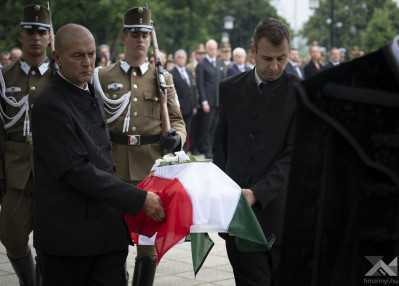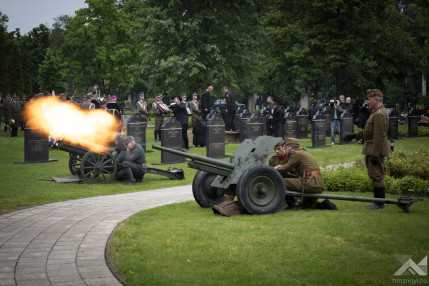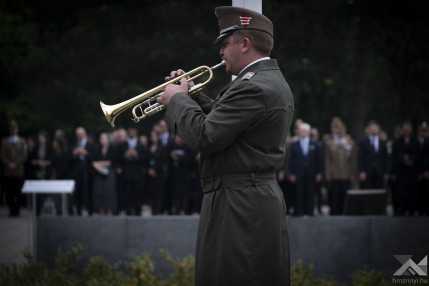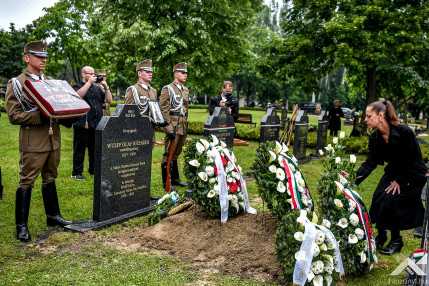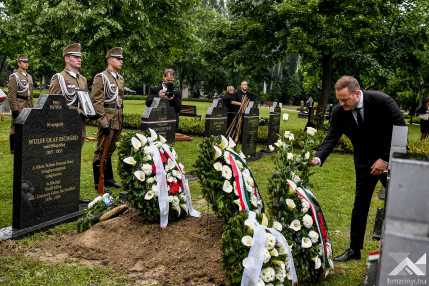We are building the military of the future drawing on our heroes
Text: defence.hu/MTI | Photo: Tünde Rácz, Gábor Kormány, Tamás Kovács | 13:48 May 22, 2025We, who are building new and combat-ready armed forces in the 21st century, must learn about the performance of Richard Olaf Wulff, this excellent soldier and outstanding military leader, and understand his fate – said Defence Minister Kristóf Szalay-Bobrovniczky at the reburial of a towering figure of Hungarian riverine warship service in plot 52 of Fiume Road cemetery on Wednesday, 21 May.
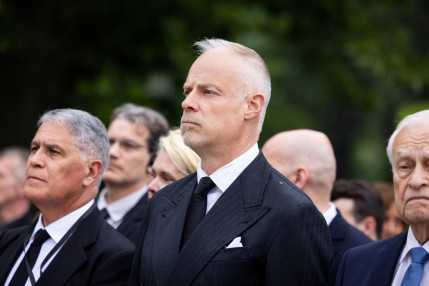
Kristóf Szalay-Bobrovniczky pointed out that in the 21st century, Richard Olaf Wulff’s military career remains an incentive for Hungarian soldiers defending their homeland, and his life sets an example to all those who dedicate their lives to serving the Hungarian nation. He added that the seaman, who bore his ancestors’ name but had a “Hungarian heart” and served the Hungarian homeland all his life evokes the memory of heroes such as those soldiers of the 1848-49 War of Independence who were of foreign descent but undertook everything for the Hungarian cause and are part of our national pantheon, from Leiningen to Damjanich to Poeltenberg to Lázár to Knezic to Schweidel. “The time has come for Olaf Wulff to take his worthy place among them” – stated the minister at the reburial held on 21 May, the Day of the Hungarian Defence Forces.
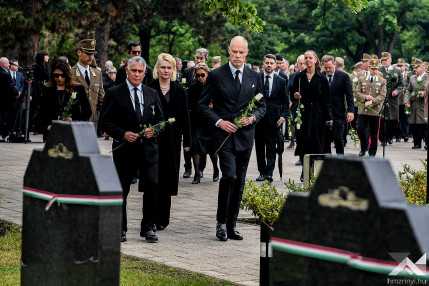
The minister said that after 70 years, Hungary now receives back home one of the greatest seamen of 20th-century Hungary, the hero of fighting on River Danube, the organizer and first commander of the Royal Hungarian River Guard, General Captain Olaf Wulff and his wife, Edina Losonczy.
He added that the history of regime change is a series of reburials, as “the possibility of meeting the people expelled or murdered by the Communist dictatorship and the past that was doomed to complete erasure is the first painful obligation of freedom”, but three and a half decades later we “still rebury people”. He said that we cannot forget that “there are still many of them abroad”. Decaying wooden crosses of lost Siberian cemeteries, the rocky areas of the Alps and the Carpathians, the depths of the Adriatic Sea, the waves of rivers Danube and Save, the concrete jungles of emigration “guard their dream that their memory is kept alive here in Hungary and one day they may return home” – he said. The minister pointed out that “every return home is a great joy and honor for the nation”, a chance to give our heroes the final respects.
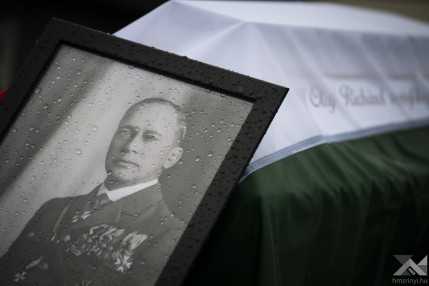
He recalled that Richard Olaf Wulff was born as a subject of the Austro-Hungarian Monarchy in Budapest in 1877, and his Norwegian father and mother taught him to serve Hungary. Later on, he became a naval officer and his service in the First World War was “accompanied by battles fought with personal example, military operations carried out in an exemplary way and accomplishments that turned the tide of entire campaigns.” On two occasions, he played a key role in the capture of Belgrade, prevented enemy forces from crossing the River Save, broke through the Lower Danube, bombarded Giurgiu, supported the crossing of Mackensen’s troops and in the last weeks of the war, he gave guard service on the rivers Dnieper and Dniester by crossing the Black Sea with his monitors – listed the minister the late commander’s feats. He also said that in recognition of his feat of arms on River Save, the hero Richard Olaf Wulff received the highest Austro-Hungarian military decoration, the Knight’s Cross of the Order of Maria Theresa.
The minister recalled that after the Treaty of Trianon, by building the Royal Hungarian River Guard, Olaf Wulff established a force in 12 years which made it possible to guard the waterways of Hungary under arms. In 1944, he left Hungary and settled in Costa Rica, where he died in 1955. “Here at home, the communists consigned him to oblivion, and wanted to erase his memory” – added the minister, emphasizing that we must learn about the performance of this former excellent soldier and commander. Kristóf Szalay-Bobrovniczky also mentioned that Richard Wulff’s wife, Edina Losonczy’s fate reflects that of 21st century military wives and families, and his example may help them carry those heavy weights “which are their lot in the defence of the homeland.”
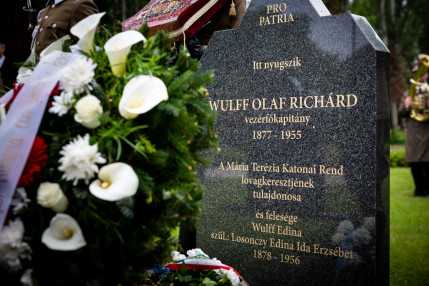
Ferdinand von Herold Duarte, the great-grandson of Richard Olaf Wulff, Hungary’s honorary consul to Costa Rica said that his great-grandfather’s life is an eternal symbol of courage, a sense of obligation and patriotism. His is not merely a soldier’s story, but that of a man loyal to his homeland who dedicated his whole life to Hungary.; even while in Costa Rica, he didn’t deny his native land, and “kept the flame of the Hungarian soul alive”.
Richard Olaf Wulff’s and his wife, Edina Losonczy’s mortal remains were laid to eternal rest with military honors in the heroes’ plot of Fiume Road Cemetery.
Photos by Tamás Kovács
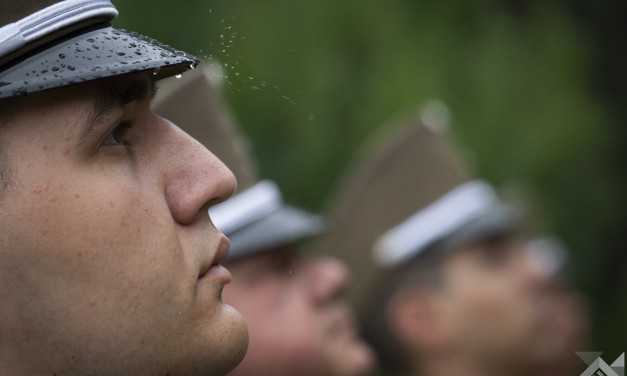

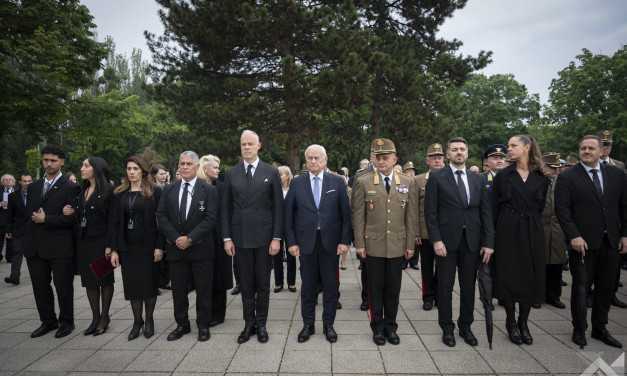
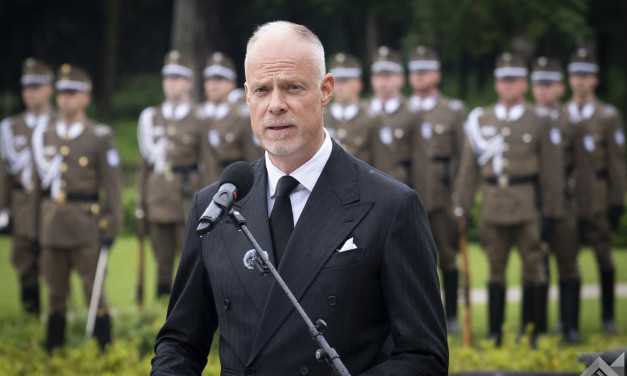
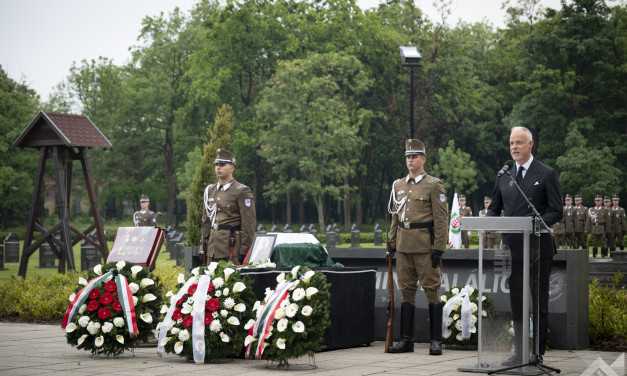
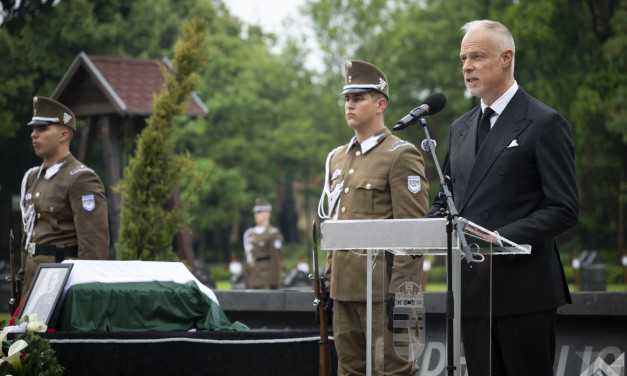
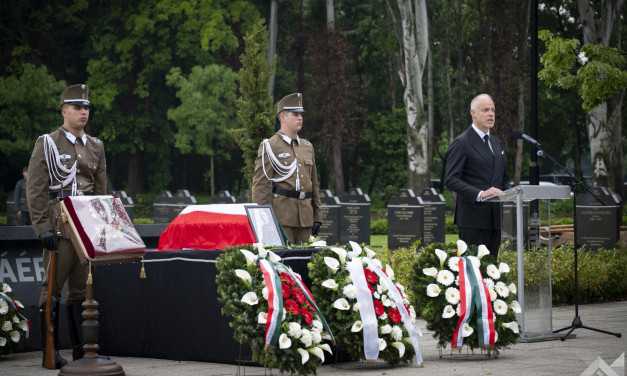
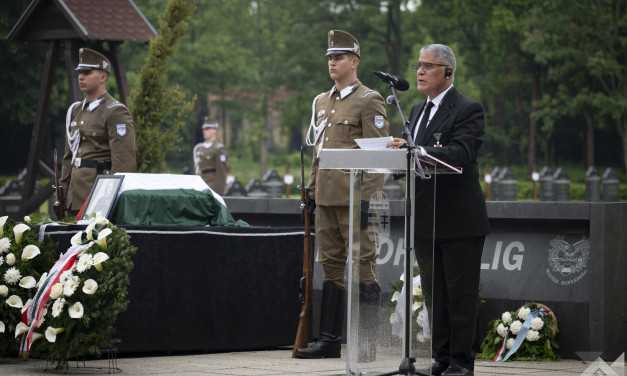
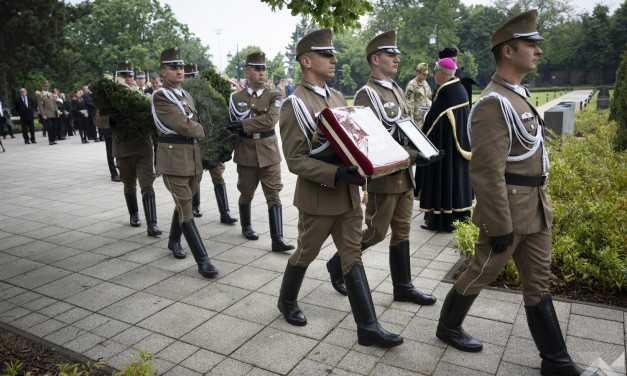

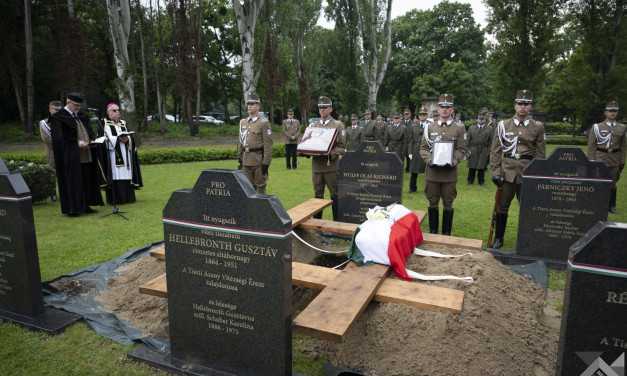

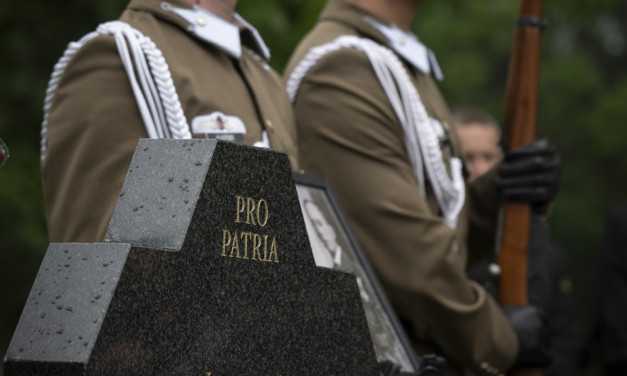
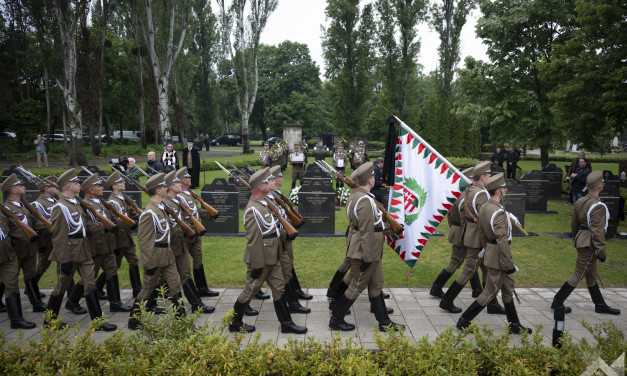

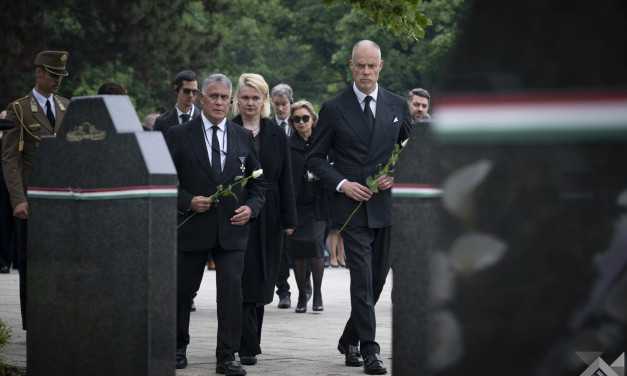
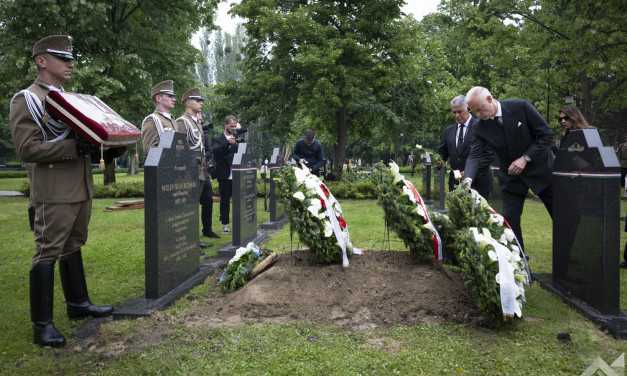
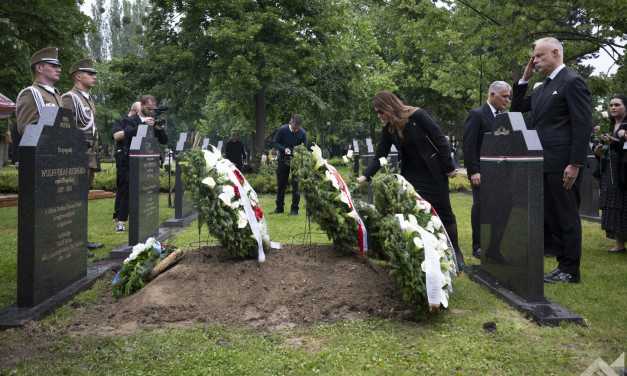
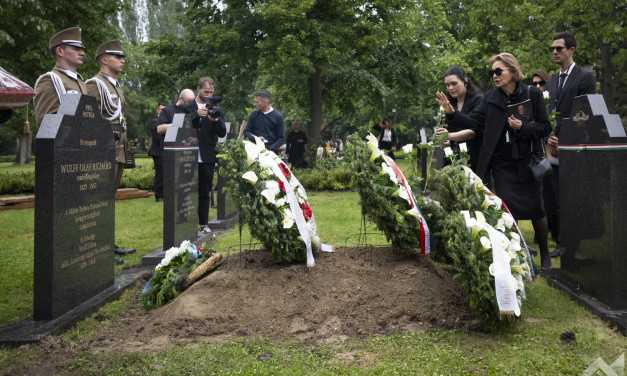
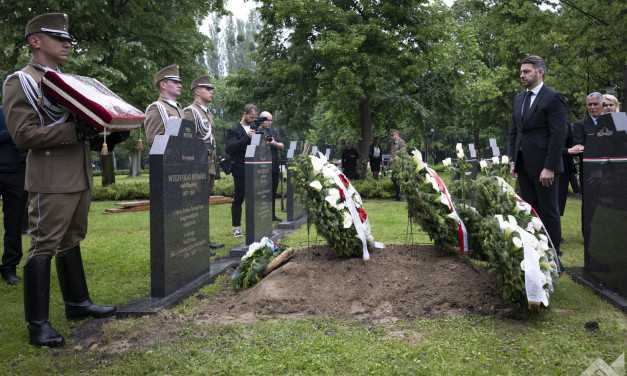
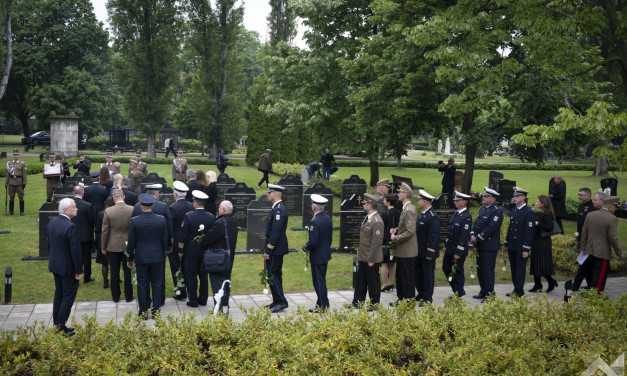
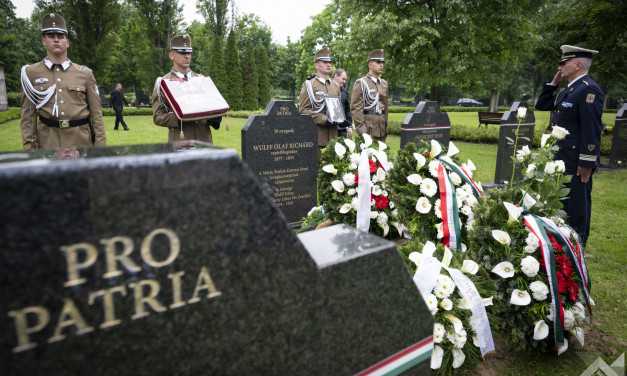
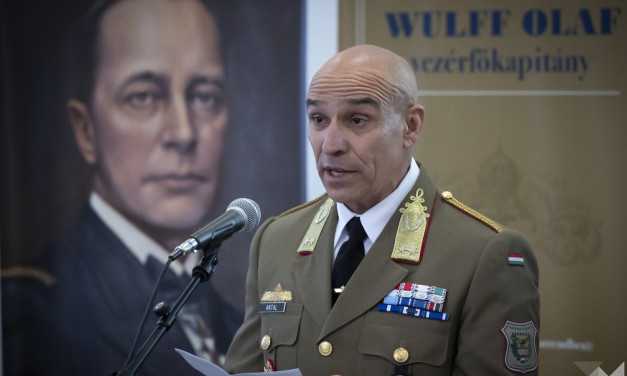
Those who were heroes in their lives must return home as heroes
“Olaf Wulff has now returned to the bank of Rive Danube, to among those who understand the greatness of this feats and know what loyalty, resoluteness and professionalism mean in the service of the homeland” – said Major General László Antal, Commander, HDF Joint Operations Command at a commemorative event following the reburial. The major general pointed out that Olaf Wulff was not only a naval officer, commander and organizer, but also a builder of Hungarian riverine warship service on a historic scale, who represented order, strength, the professional minimum and military honor when others had already given up.
László Antal recalled Olaf Wulff’s greatest peacetime service, the organization of the Royal Hungarian River Guard in the years following the First World War: “There are times when one must defend the homeland under arms, and there are other times when one must build institutions, organizations and traditions, which is often more difficult than fighting a battle. Olaf Wulff’s lifetime achievement shows that the service of the homeland is not only a question of courage but also of proficiency”. The general captain’s final return home gives us an occasion not only to commemorate him but also to set his courage and preparedness as an example.
“He was the one who reorganized what had fallen apart, the one who was not afraid to state that Hungary needs riverine defence forces because he knew that water is not only a border but also a responsibility” – said the commander of the HDF Joint Operations Command. “Today, the person we are paying tribute to is not merely a historical personality. We are honoring a Hungarian soldier who knew what obligation, service and patriotism mean.” With these words, Major General Antal paid tribute to the hero of the Great War, General Captain Olaf Wulff who already rests in Hungarian soil, and called on the commemorators to keep his memory alive in their acts, their sense of vocation and dedication.
Photos by Tünde Rácz
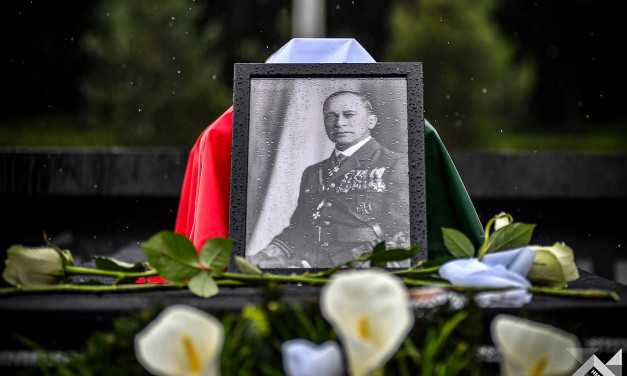
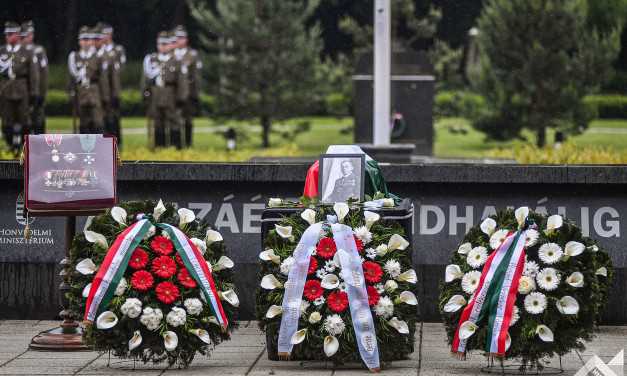
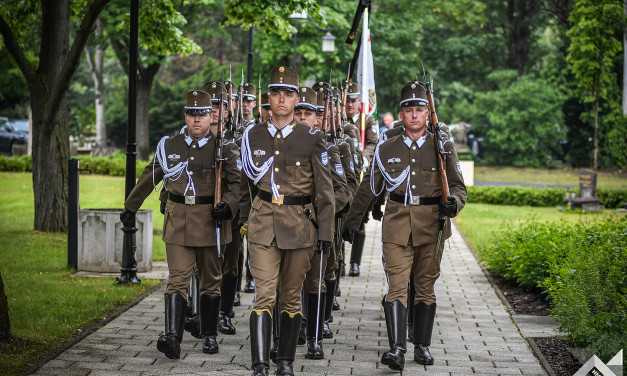
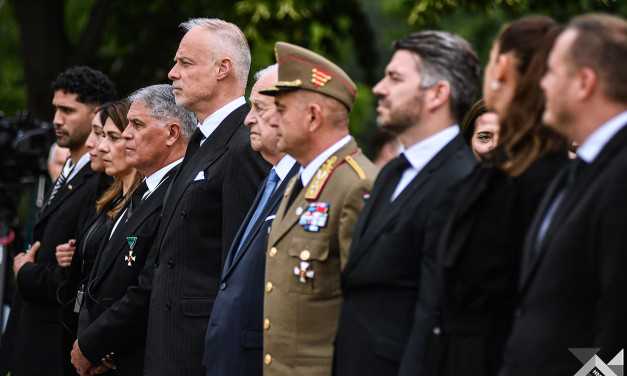
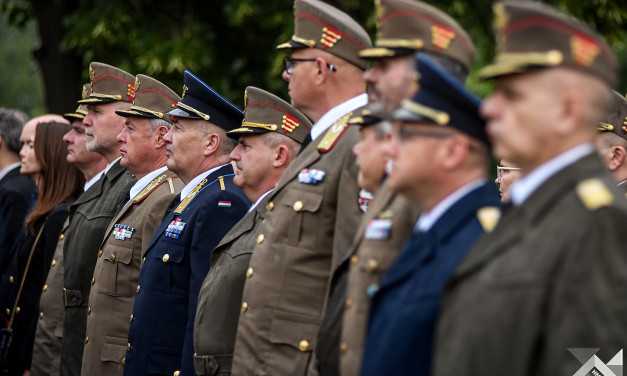
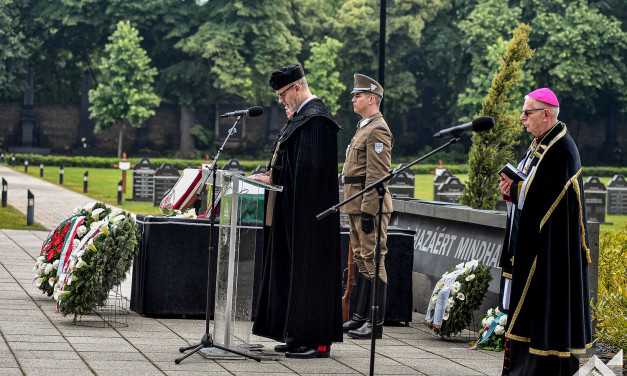
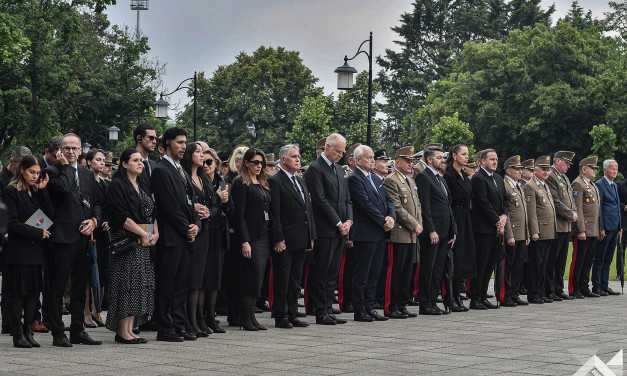
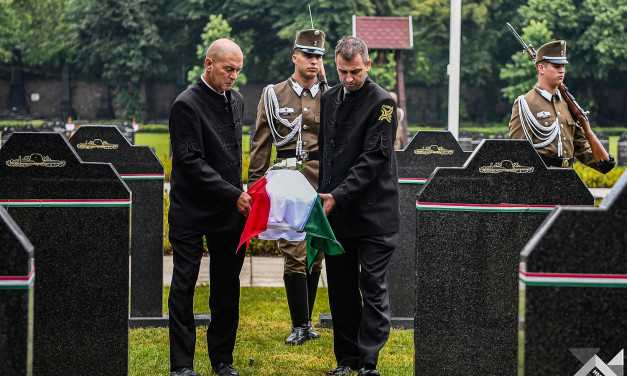
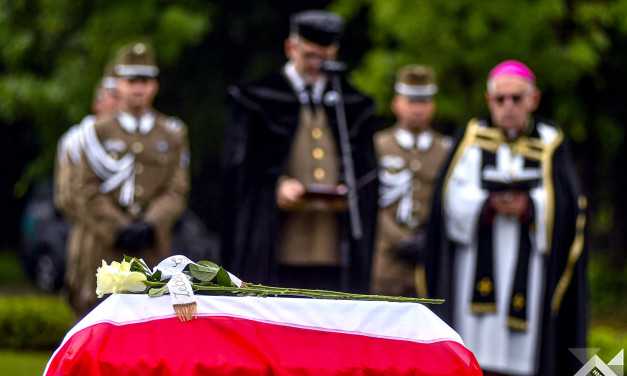
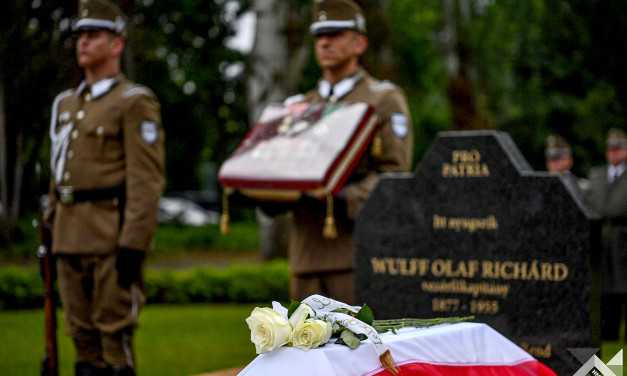
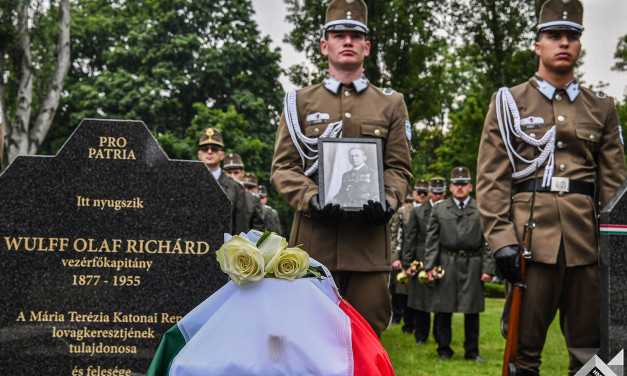
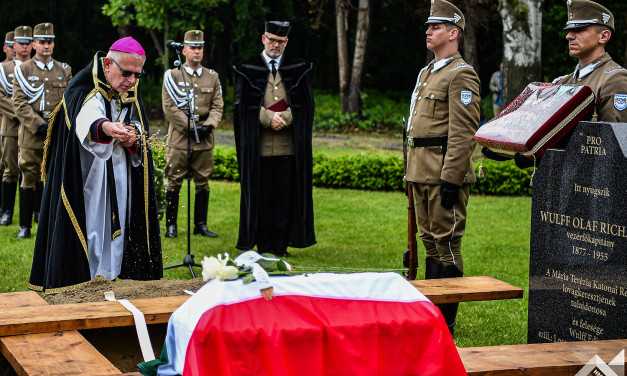
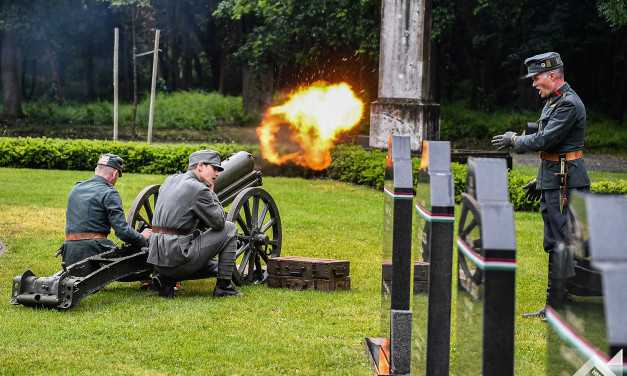
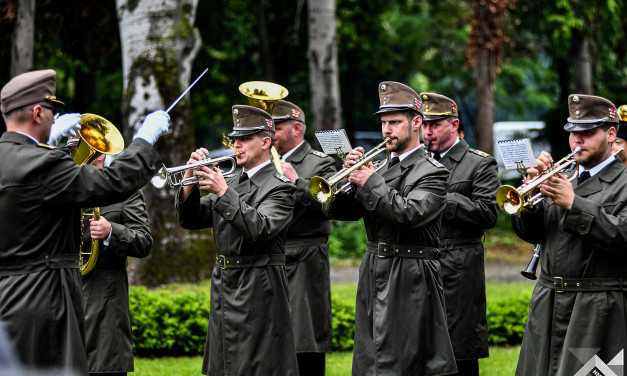
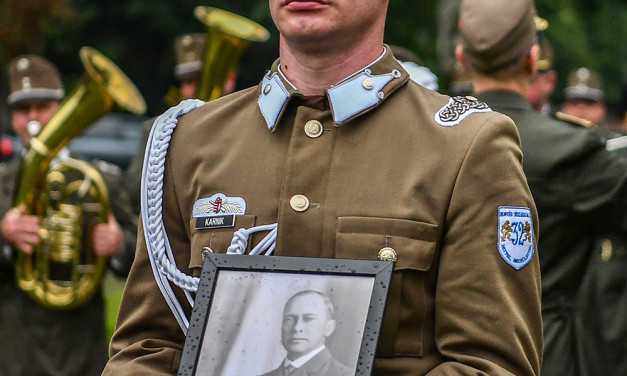
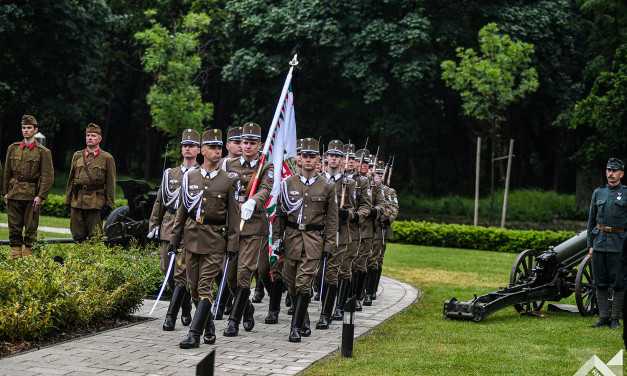
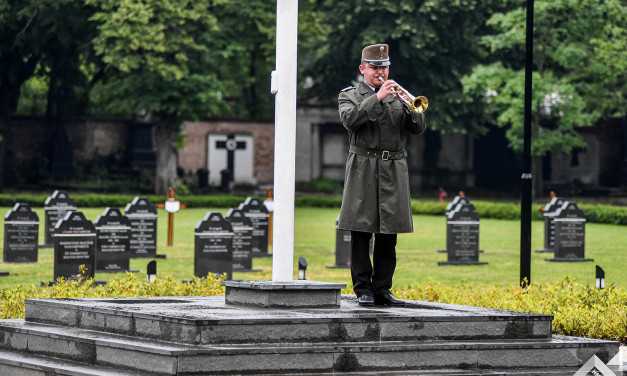

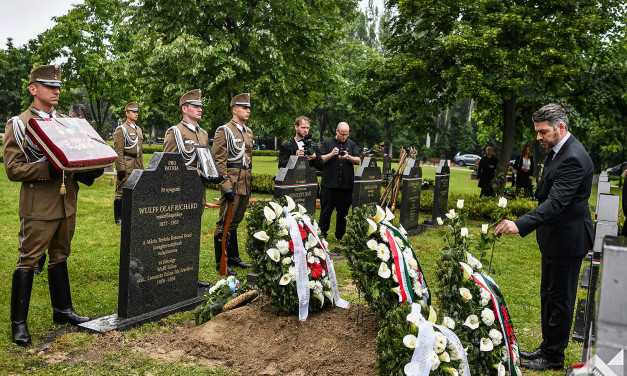


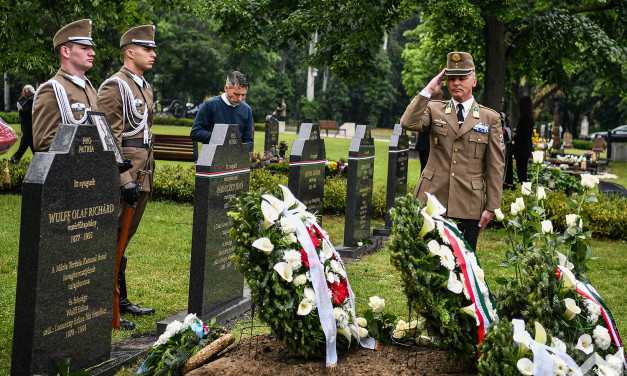
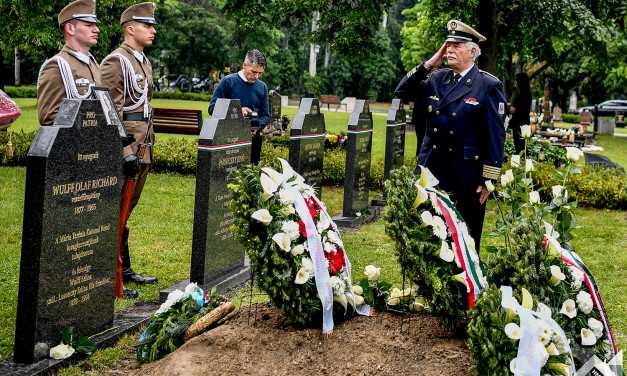
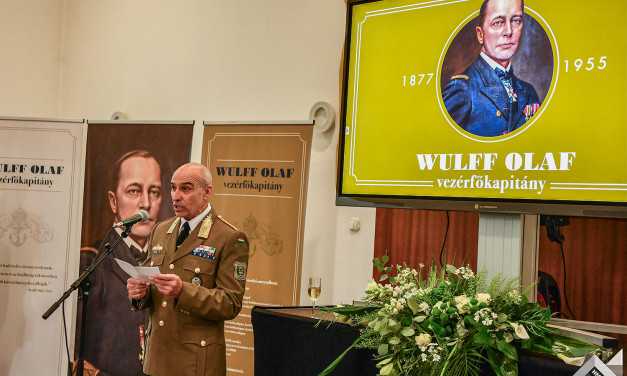
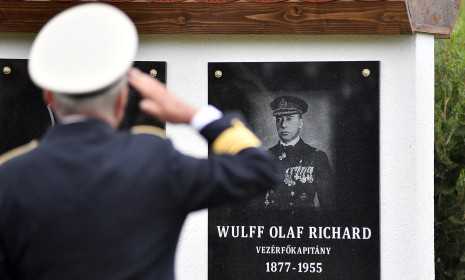
The moment of shattering joy
12:09 May 21, 2025








